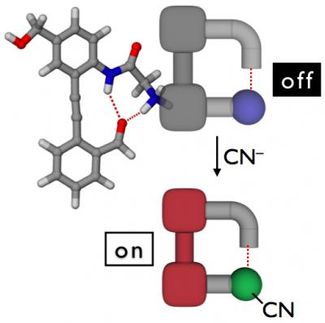Fertlizers no help for poor African farmers
Studies: The poorest African farmers don't benefit from fertilizers
Advertisement
Researchers have linked poverty in sub-Saharan Africa with poor soil health, but two new Cornell studies find that the recommended practice of applying more fertilizer may not help the poorest farmers. Two new studies by Chris Barrett, the Steven B. and Janice G. Ashley Professor of Applied Economics and Management at Cornell, and Paswel Marenya, Ph.D. '08, a lecturer at the University of Nairobi, find flaws in the fertilizer-promotion strategy used by dozens of African countries to improve soil health, crop yields and the wealth of poor farmers. Forty African heads of state had devised plans in 2006 to help farmers in sub-Saharan Africa -- one of the poorest regions of the world where soils are often too degraded to reliably grow crops - get better access to soil-enhancing fertilizers by improving roads, increasing access to seasonal credit and improving farmer education on fertilizer use.
"If soils are too degraded, fertilizers don't respond well," said Barrett. "These results challenge basic assumptions behind efforts to promote fertilizer use and distribution as a key element of poverty reduction strategies in rural Africa."
The first study, published online in the American Journal of Agricultural Economics (and in print in November), looked at soil fertility data for maize plots - some that had been cultivated for 100 years -- on 260 farms in western Kenya. The study found that fertilizers' effects on crop yields are far greater when applied to healthy soils with higher levels of soil carbon and organic matter than when applied to degraded soils with low soil carbon. The degraded soils usually were the result of repeated plantings without breaks. The authors also reported that poorer farmers most commonly cultivate the most degraded soils, which means that fertilizer policies aimed at helping the poor may actually reinforce income inequalities.
The paper noted that without adequate soil carbon and organic matter, plants absorb fewer of the nutrients in fertilizers. The study recommends greater emphasis on integrating organic matter, such as manure from livestock or post-harvest crop waste, to raise soil carbon levels and make nutrients from fertilizers more available to plants.
Most read news
Organizations
Other news from the department science

Get the chemical industry in your inbox
By submitting this form you agree that LUMITOS AG will send you the newsletter(s) selected above by email. Your data will not be passed on to third parties. Your data will be stored and processed in accordance with our data protection regulations. LUMITOS may contact you by email for the purpose of advertising or market and opinion surveys. You can revoke your consent at any time without giving reasons to LUMITOS AG, Ernst-Augustin-Str. 2, 12489 Berlin, Germany or by e-mail at revoke@lumitos.com with effect for the future. In addition, each email contains a link to unsubscribe from the corresponding newsletter.





























































